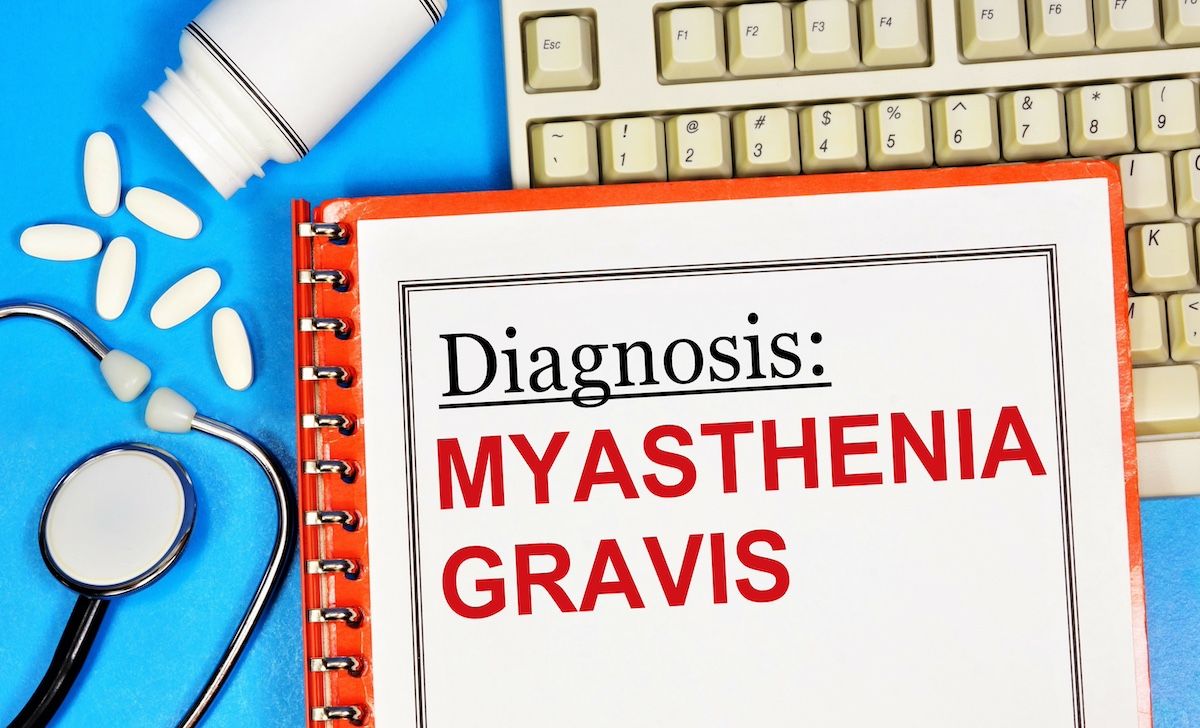- Center on Health Equity & Access
- Clinical
- Health Care Cost
- Health Care Delivery
- Insurance
- Policy
- Technology
- Value-Based Care
Chinese Patients With gMG Respond Well to Efgartigimod
A new report offers safety and efficacy data on a population with generalized myasthenia gravis (gMG) not represented in the drug’s pivotal phase 3 trial.
Efgartigimod (Vygart; argenx) appears to be safe and effective in Chinese patients with generalized myasthenia gravis (gMG), according to a new population-specific study.
The report, which was published in Frontiers in Neurology, offers some of the first data related specifically to how Chinese patients respond to the therapy.1
Efgartigimod is an antibody fragment that binds to the neonatal Fc receptor, thereby preventing it from recycling pathogenic immunoglobulin G. In the US, the therapy was first approved to treat gMG in 2019, based on the strength of data from the phase 3 ADAPT trial. The trial found 68% of patients with MG who were positive for anti-acetylcholine receptor antibodies had sustained improvement of at least 2 points on the MG-Activities of Daily Living (MG-ADL) scale after a cycle of efgartigimod therapy.2
Yet, the study authors noted that the ADAPT trial had certain demographic limitations.
“[T]he limited representation of Asians, particularly the absence of Chinese patients, underscores the need for additional assessment of efgartigimod within this population,” they explained.
They noted that an ADAPT subset analysis of 8 Japanese patients found that only 3 of the 8 patients achieved responder status during the first cycle of treatment.
“However, the limited sample size in that analysis may have introduced bias,” they wrote.
Efgartigimod binds to the neonatal Fc receptor, preventing it from recycling pathogenic immunoglobulin G | Image Credit: Николай Зотов-stock.adobe.com

To better understand whether people of Asian heritage—and Chinese patients, in particular—respond differently to the therapy, Zhao and colleagues recruited a total of 14 Chinese patients with gMG and asked them to participate in an 8-week study. Patients received 4 doses of efgartigimod over the course of 3 weeks, and then were assessed 5 weeks later to determine the therapy’s safety and efficacy. As with the ADAPT trial, the primary outcome was mean change in MG-ADL scores at 4 weeks, and patients were considered “responders” if they sustained at least a 2-point improvement for 4 weeks.
The patients in the new study had a mean (SD) age of 57.7 years and a mean MG-ADL score of 10.86 (3.32) at baseline. Four weeks later, the patients had a mean MG-ADL reduction of 6 points, and a maximum decrease of 13 points. Twelve of the 14 patients (85.7%) were considered responders to the therapy after 1 cycle of treatment.
In terms of quantitative MG scores, the authors noted a mean decrease of 7 points at week 4, and those improvements persisted until week 8, they said.
The investigators noted some differences between their cohort and that of the ADAPT trial. On average, patients in the new study had been diagnosed about 6 years prior to the trial’s initiation; in the ADAPT study, the average was 10 years. In addition, a lower number of patients in the new study had previously been treated with steroids and nonsteroidal immunosuppressants compared with the ADAPT trial, the authors said.
In terms of safety, the authors said only 2 mild neck rashes were reported, both of which resolved quickly. No infections or serious adverse events were noted, they said.
The investigators cautioned that the new report was a single-arm study without a control group. It was also based on a single cycle of the therapy, thus limiting investigators’ ability to understand the long-term safety and efficacy of the drug. Finally, as with the Japanese subset analysis, the authors said this study was based on a relatively small sample size. They said a larger trial might help validate these findings.
Despite those limitations, the authors said these new data suggest Chinese patients will benefit from efgartigimod in a manner similar to the general population.
The study, they said, “demonstrates that efgartigimod exhibits robust efficacy and tolerability in Chinese gMG patients, with outcomes comparable to those of the ADAPT study.”
References
1. Wang P, Zhang B, Yin J, et al. Prospective cohort study evaluating efficacy and safety of efgartigimod in Chinese generalized myasthenia gravis patients. Front Neurol. Published online June 17, 2024. doi:10.3389/fneur.2024.1407418
2. Howard JF Jr, Bril V, Vu T, et al. Safety, efficacy, and tolerability of efgartigimod in patients with generalised myasthenia gravis (ADAPT): a multicentre, randomised, placebo-controlled, phase 3 trial. Lancet Neurol. 2021;20(7):526-536. doi:10.1016/S1474-4422(21)00159-9
